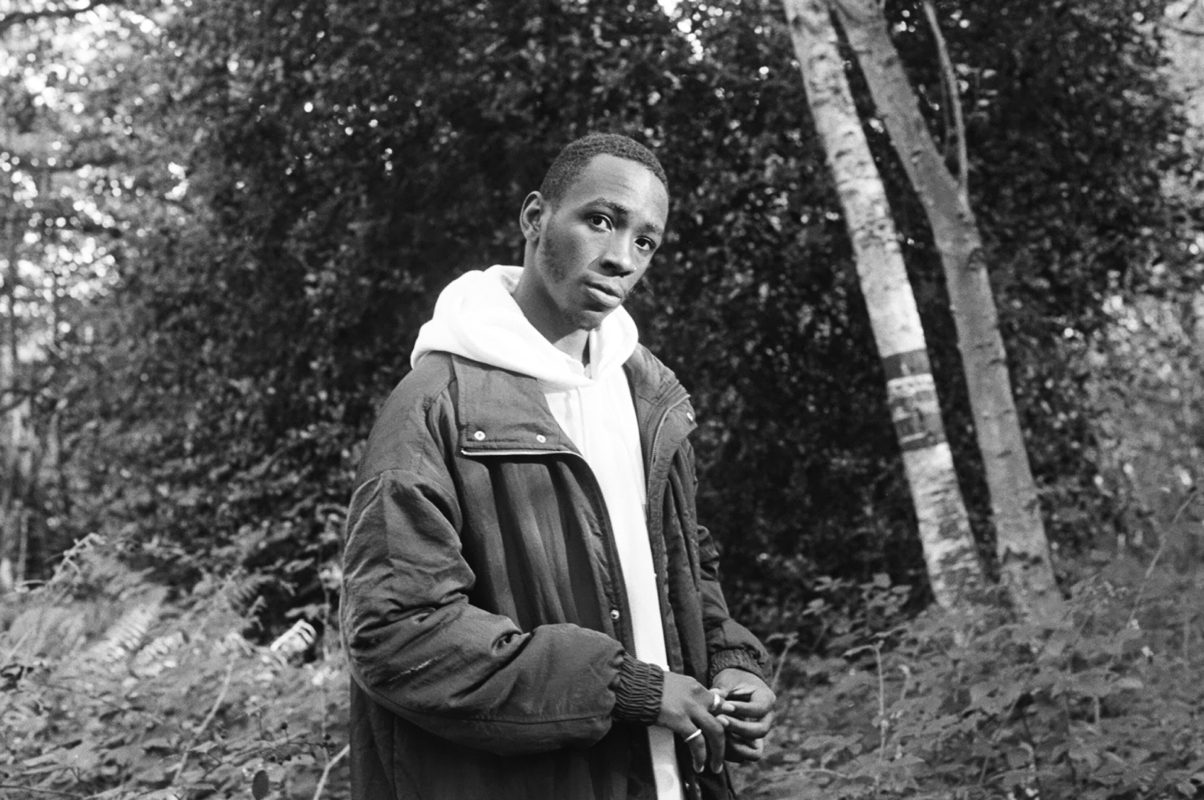Earlier this year, we announced our latest partnership with DIY magazine to celebrate our #MusicMadeUs campaign. As part of this new partnership, students from across our colleges interviewed artists and industry professionals in collaboration with DIY and through the lens of Music Made Us. They also received guidance and mentorship sessions before the interview with DIY’s journalism and editorial team.
Zambia-born, London-based melodist and songwriter Sam Dotia sketches out his artistic journey and the influences that shaped him and a generation in this interview with BIMM Institute Manchester’s Joakin Clary Niemi Junkola.
“I felt very detached,” Sam Dotia admits. Navigating through the musical wilderness of GCSE Music, before studying musical theatre at college, came with conflicts he had to recognize. “I’m singing someone else’s feelings. I’m saying someone else’s words,” he confesses, before recounting the discovery of his own musical process. “I would just be writing things and then it would be very spoken wordy with me just playing the guitar underneath,” he describes. “And every so often a melody would poke out and then I would essentially at a certain point, be writing songs without realising.” Sam’s music exists in a quiet and delicate universe that creates a retreat for listeners to dwell in, usually with a light touch of guitar or piano while Sam spills his emotions out gracefully.
I did my dissertation on transcendentalism within modern music and how artists are able to flex their sonic identity within different sounds and different pockets, but still remain themselves essentially.
After having his own epiphany, Sam turned to his favourite artists to further develop his sound and identity as an artist. He enthusiastically credits Daniel Caesar’s 2015 EP ‘Pilgrims Paradise’, for providing him with clarity regarding artistic flexibility and authenticity. “That EP showed me how you can stay yourself within different sounds, because at university, I did my dissertation on transcendentalism within modern music and how artists are able to flex their sonic identity within different sounds and different pockets, but still remain themselves essentially.”
Everything Sam does contributes to his art, even things that don’t pertain to music, like potential cover art. “If I see a cool print, like the other day I was playing basketball with my boy from down at the court, and there was a sick pattern on the skirting of a shelter… that would be a cool pattern if it were overlaid on text in a cover,” he recalls. Sam is undeniably a visual artist with microscopic attention to detail for everything he creates. “I always see my songs or I hear them in my head before I make it. I can see the type of text fonts that I’m going for, the sound and the visuals. I always see it as a scene in a movie.”
Sam’s cinematic thoughts can be traced back to his first love of poetry, or as he simply put it in his BBC Music Introducing interview, the art of “saying multiple things by saying as little things as possible”. His minimalistic approach is effortlessly apparent in the tranquillity of ‘Requiem 48’ and his debut single ‘Uriah’s Cry’. “Towards the latter half of the song, there’s a wailing sound for whatever reason, but doing my homework and contextually within the song, that wailing sound is Uriah’s cry.” Needless to say, the song is an acoustic haven that demonstrates the very best of Sam’s conceptual mind.
I love when artists play with their own sonic identity, but through a bare bones structure
When it comes to influences and his identity, Sam cites ‘Rushes To’ by Frank Ocean as a song that accurately represents him; “To me, the song is essentially a melodic poem.” He also expresses his adoration for ‘Overgrown’ by James Blake and several Paramore releases including ‘Brand New Eyes’ and ‘Misguided Ghosts’. “I love when artists play with their own sonic identity, but through a bare-bones structure. So it’s just them and a guitar or them and a piano, but you can still hear that it’s them expressing themselves,” he explains.
“Okay so I’m going to nerd out, right,” Sam Dotia warns before biblically reciting the third verse of Kendrick Lamar’s song ‘Sing About Me, I’m Dying of Thirst’. “Sometimes I look in the mirror and ask myself: Am I really scared of passin’ away? If it’s today I hope I hear a, cry out from heaven so loud it can water down a demon with the Holy Ghost ’til it drown in the blood of Jesus,” he spits, without a single error.
“Being raised religious, I’ve always thought of death as just like an end thing, but it’s a case of there’s this guy, Kendrick, black, at the apex of his career at the time I thought, and he’s still being honest and open about his feelings of suicide, but playing with the idea of suicide.” The sensitivity of this analysis encapsulates the impact artists such as Kendrick Lamar have on the new generation of thoughtful artists, which is evident in Sam’s musicianship. “And it’s just like a curiosity almost… I fell in love with it instantaneously. It made me feel seen.”
Our Music Made Us campaign is told through the students, graduates, journalists, experts and passionate people who have been shaped by this creative outlet. Discover their stories here.
Photo by George Quann



